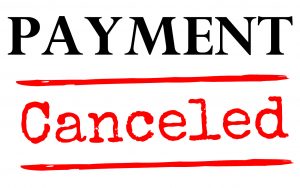 The Watchtower argues against the bodily resurrection of Jesus by claiming that if Jesus’ body rose from the dead, he would have taken back the payment for our sin debt.
The Watchtower argues against the bodily resurrection of Jesus by claiming that if Jesus’ body rose from the dead, he would have taken back the payment for our sin debt.
Let’s see how to respond.
Here is the Watchtower’s reasoning: “If a man pays a debt for a friend but then promptly takes back the payment, obviously the debt continues. Likewise, if, when he was resurrected, Jesus had taken back his human body of flesh and blood, which had been given in sacrifice to pay the ransom price, what effect would that have had on the provision he was making to relieve faithful persons of the debt of sin?”[i]
If you get blindsided by an argument like that, it can be difficult to come up with a good response.
Jesus provided us with a good rejoinder in John 10:17-18: “This is why the Father loves me, because I surrender my life, so that I may receive it again. No man takes it away from me, but I surrender it of my own initiative. I have authority to surrender it, and I have authority to receive it again. This commandment I received from my Father.”
Here is a summary of the point you are making.
- The ransom Jesus paid was his perfect life.
- He knew that the Father gave him authority to receive his life back again in three days.
- By the Watchtower’s argument, wasn’t that a taking back of the sacrifice which negated the payment?
- Neither the Father nor the Son seemed to think so.
One of the best aspects of this response is that it accords with the Watchtower’s view of “the ransom” that it was Jesus’ life—rather than his physical body—that was the sacrifice:
“Since a perfect human life was lost, no imperfect human life could ever buy it back… So, what would cover the value of the perfect human soul, or life, that Adam lost? Another perfect human life was the “corresponding ransom” that was required.”[ii]
Witnesses may argue that is was Jesus’ human life that he sacrificed, not his heavenly one. But Jesus’ statement in John 10 makes no such distinction. Besides, Witnesses don’t believe that he took back his human life at all.
Your soundbite: According to John 10, it was Jesus’ life that he surrendered, and it was his life that he received back again. That didn’t negate the payment.
Your turn:
Have you ever had difficulty answering the Watchtower’s “Take Back The Ransom” argument? What do you think of my response?
Share your thoughts in the comments.
[i] Reasoning From the Scriptures (1985), p. 217
[ii] What Does the Bible Really Teach? (2005), p. 50

Leave a Reply
3 Comments on "Dealing with the “Take Back the Ransom” Argument"
The issue is really around the blood, and not the body of Jesus Christ.
Hebrew 9:22 makes it clear that it was the shedding of blood, not the recovery of a body that redeemed us.
1 John 1:7 makes it clear that Jesus’ blood cleansed us of all sin, not His body.
Ultimately, it is neither the shed blood nor the crucified body which redeems us. If He had been rescued from the Cross and recuperated and not died our sins would not have been paid for; we would not have been redeemed. The terms “shed blood” and “crushed body” are metaphors for His death. It is His sinless death that redeems us.
tadalafil generic
You actually said that perfectly.